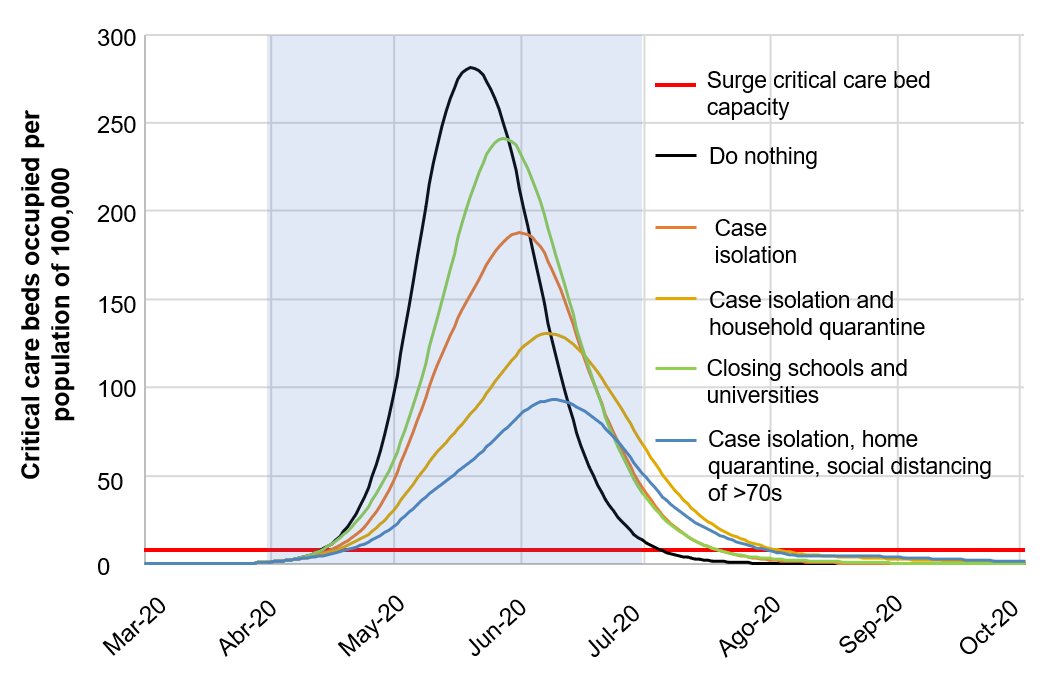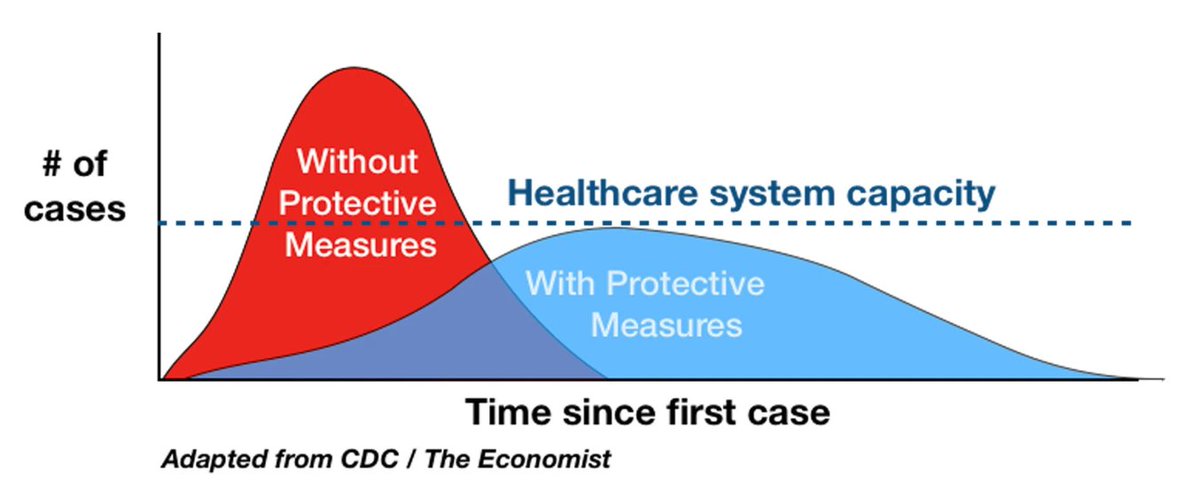What worked, what didn't, what the costs and consequences were, etc.
In the moment, it is hard to judge, though multiple approaches are evident.
1/
In other words, they want to find every case, isolate every sick person, tightly control the borders, and completely eliminate COVID-19's local spread.
2/
3/
In which case, you avoid many deaths and much of the impact on hospitals. Depending on how long it takes to suppress the virus, the social and economic disruption might also be reduced.
5/
Every new outbreak would have to be located quickly and eliminated vigorously.
6/
However, I am ill-equipped to know if it is the optimal public policy. For many countries, especially poor ones, suppression may simply not be achievable.
7/
8/
However, this still allows most of a country's population to eventually be infected, and a significant number would die.
9/
10/
Image: imperial.ac.uk/media/imperial…

And we are already talking about trillion dollar support packages.
11/
It is currently unknown how long COVID-19 immunity will typically last.
12/
It is plausible to imagine mitigation focused countries suffering both larger health and economic costs than countries that successfully suppress the virus.
13/
14/
However, I hope they think hard about South Korea's example.
15/15










